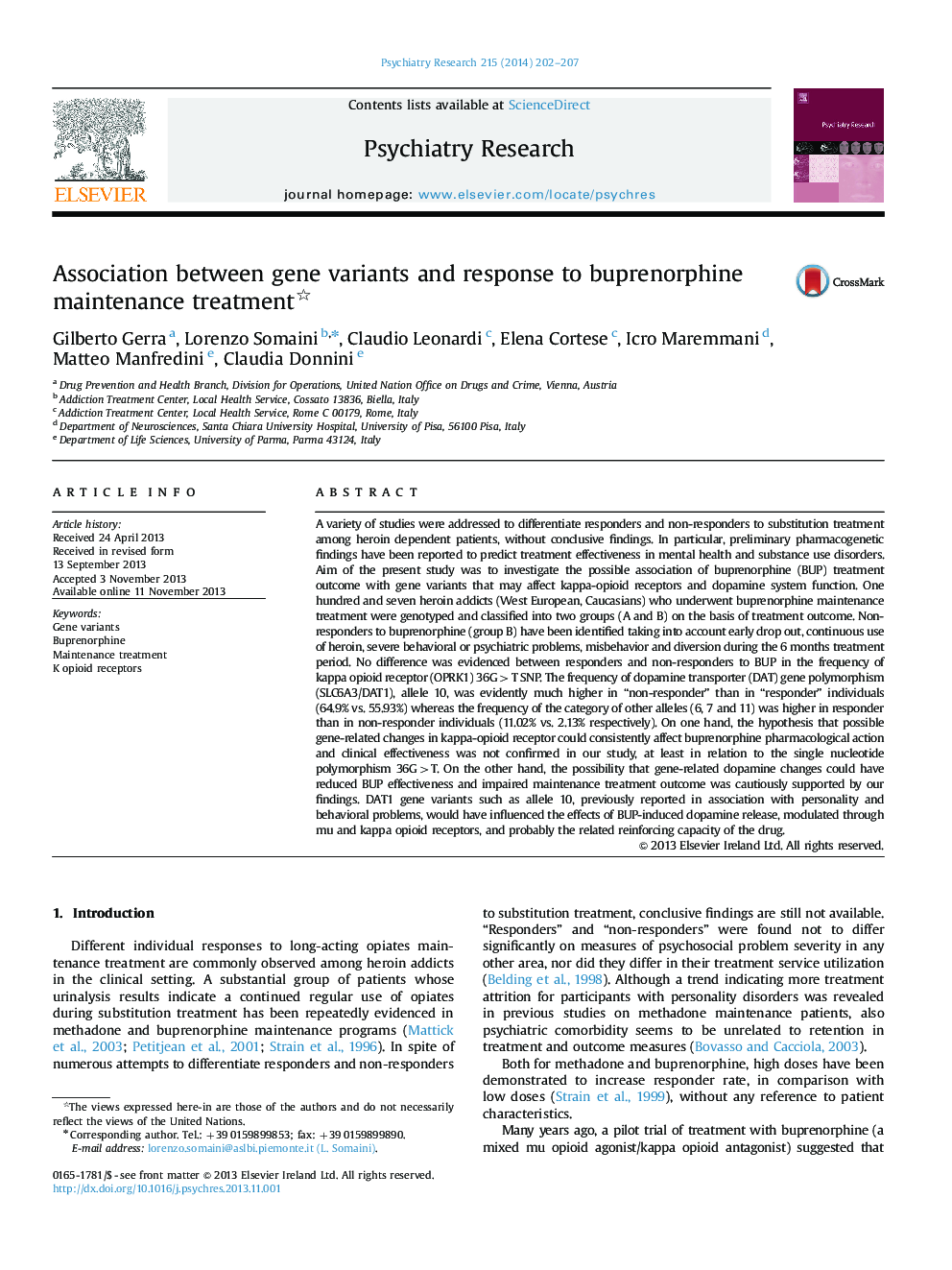| کد مقاله | کد نشریه | سال انتشار | مقاله انگلیسی | نسخه تمام متن |
|---|---|---|---|---|
| 332315 | 545686 | 2014 | 6 صفحه PDF | دانلود رایگان |
A variety of studies were addressed to differentiate responders and non-responders to substitution treatment among heroin dependent patients, without conclusive findings. In particular, preliminary pharmacogenetic findings have been reported to predict treatment effectiveness in mental health and substance use disorders. Aim of the present study was to investigate the possible association of buprenorphine (BUP) treatment outcome with gene variants that may affect kappa-opioid receptors and dopamine system function. One hundred and seven heroin addicts (West European, Caucasians) who underwent buprenorphine maintenance treatment were genotyped and classified into two groups (A and B) on the basis of treatment outcome. Non-responders to buprenorphine (group B) have been identified taking into account early drop out, continuous use of heroin, severe behavioral or psychiatric problems, misbehavior and diversion during the 6 months treatment period. No difference was evidenced between responders and non-responders to BUP in the frequency of kappa opioid receptor (OPRK1) 36G>T SNP. The frequency of dopamine transporter (DAT) gene polymorphism (SLC6A3/DAT1), allele 10, was evidently much higher in “non-responder” than in “responder” individuals (64.9% vs. 55.93%) whereas the frequency of the category of other alleles (6, 7 and 11) was higher in responder than in non-responder individuals (11.02% vs. 2.13% respectively). On one hand, the hypothesis that possible gene-related changes in kappa-opioid receptor could consistently affect buprenorphine pharmacological action and clinical effectiveness was not confirmed in our study, at least in relation to the single nucleotide polymorphism 36G>T. On the other hand, the possibility that gene-related dopamine changes could have reduced BUP effectiveness and impaired maintenance treatment outcome was cautiously supported by our findings. DAT1 gene variants such as allele 10, previously reported in association with personality and behavioral problems, would have influenced the effects of BUP-induced dopamine release, modulated through mu and kappa opioid receptors, and probably the related reinforcing capacity of the drug.
Journal: Psychiatry Research - Volume 215, Issue 1, 30 January 2014, Pages 202–207
